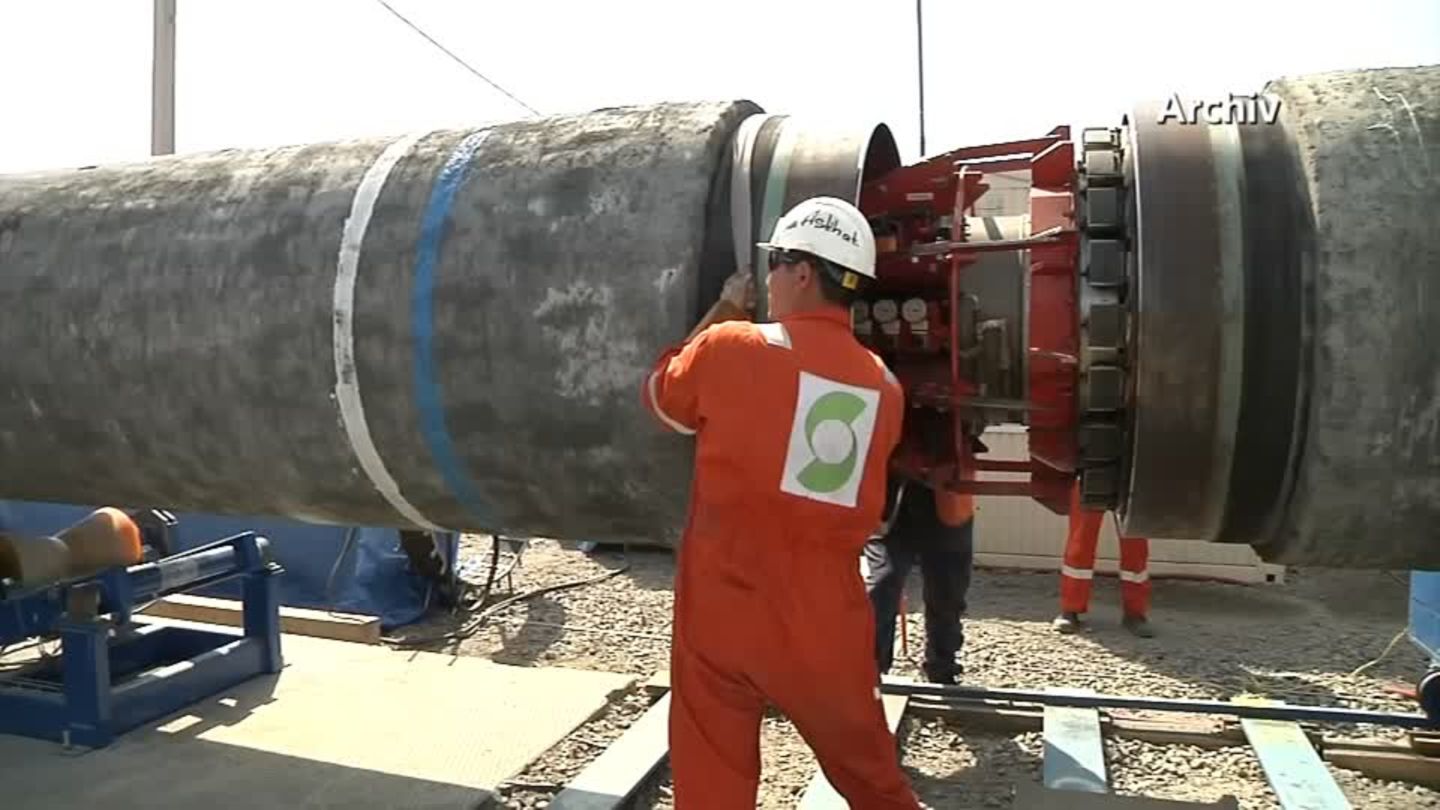The Nord Stream 2 Baltic Sea pipeline also plays a role in the conflict over Ukraine – most of Germany’s allies reject it. US President Joe Biden is threatening to end the project. But what would that mean?
Actually, apart from Russia and parts of the federal government, everyone would be happy if the tube stayed the way it has been since it was completed in September: empty. Environmental and climate protection associations reject the Nord Stream 2 gas pipeline, as do Poland and Ukraine. As transit countries, the European neighbors earn money from Russian gas for Germany.
Ukraine conflict: Joe Biden’s clear words on Nord Stream 2
The USA is also eyeing the pipeline critically, for them the line leads directly into dependency on Russia. When Chancellor Olaf Scholz made his inaugural visit to Joe Biden in the White House, he did not mention Nord Stream at all – not even when the US President made it clear that a Russian invasion of Ukraine would mean the end of the controversial Baltic Sea pipeline would.
Although the Kremlin has now deployed close to 100,000 troops along the border with Ukraine, it remains unclear whether Russian President Vladimir Putin is prepared to risk military action or whether his saber-rattling serves other purposes. In the meantime, the responsible authorities in Germany and Brussels are still bending over the approval papers for Nord Stream 2. So no gas is flowing through the 1230-kilometer double pipe anyway.
So what would an end to Nord Stream 2 mean?
For Germany
Germany has been importing large quantities of oil and gas from Russia since the 1970s, i.e. since the time of the Cold War. Around half of Germany’s gas requirements come from the giant empire in the east. Nord Stream 2 is the fourth line through which the energy source is to reach Germany. 55 billion cubic meters per year are planned.
Should the deliveries fail, Germany would have less gas available – and the timing for the lack of the raw material would be rather unfavorable. Because the approximately 30 gas storage facilities are currently unusually empty. Winter is still mild, but should that change, stocks could be gone by the end of March.
It cannot be ruled out that the Kremlin may also stop further energy supplies if the new tube is not commissioned. So far, both the Soviet Union and Russia have always been faithful to the treaty, even in the iciest of times. However, the so-called gas dispute has been smoldering between Moscow and Kiev for a long time, which has repeatedly led to delivery stops. In 2009, for example, Southeastern European countries such as Slovakia and Bulgaria were particularly affected.
Alternatives to Russian gas are currently still rare. The second largest supplier, Norway, cannot increase its capacities and American liquefied natural gas cannot yet be delivered in Germany due to a lack of infrastructure. The first LNG terminal required for this is currently being built in Brunsbüttel on the Elbe.
For Russia
When Russia stopped supplying the coveted energy source in 2009 because of the gas dispute with Ukraine, the companies lost 120 million US dollars a day, a total of around 1.1 billion dollars. For the companies involved, but also for the government, the lack of raw material deliveries is primarily a financial loss, although the country exports significantly more oil than gas.
However, Nord Stream 2 is also an infrastructure project for other oil and gas fields that have yet to be developed. If this line is lost, the raw material would have to be transported via other, more expensive routes. For example overland via Ukraine or Poland. But Moscow is trying to bypass these “difficult” neighbors with the Baltic Sea pipeline.
For the companies involved
The construction of Nord Stream 2 cost almost ten billion euros. Half of this was paid for by the Russian state-owned company Gazprom, which is also the sole owner. The other half comes from the energy companies OMV (Austria), Wintershall Dea, Uniper (both Germany), Engie (France) and Shell (Great Britain). If their pipeline doesn’t go live as planned, they may want to reclaim their investment. In court if necessary.
Sources: DPA, AFP, , , ,
Source: Stern
Jane Stock is a technology author, who has written for 24 Hours World. She writes about the latest in technology news and trends, and is always on the lookout for new and innovative ways to improve his audience’s experience.




